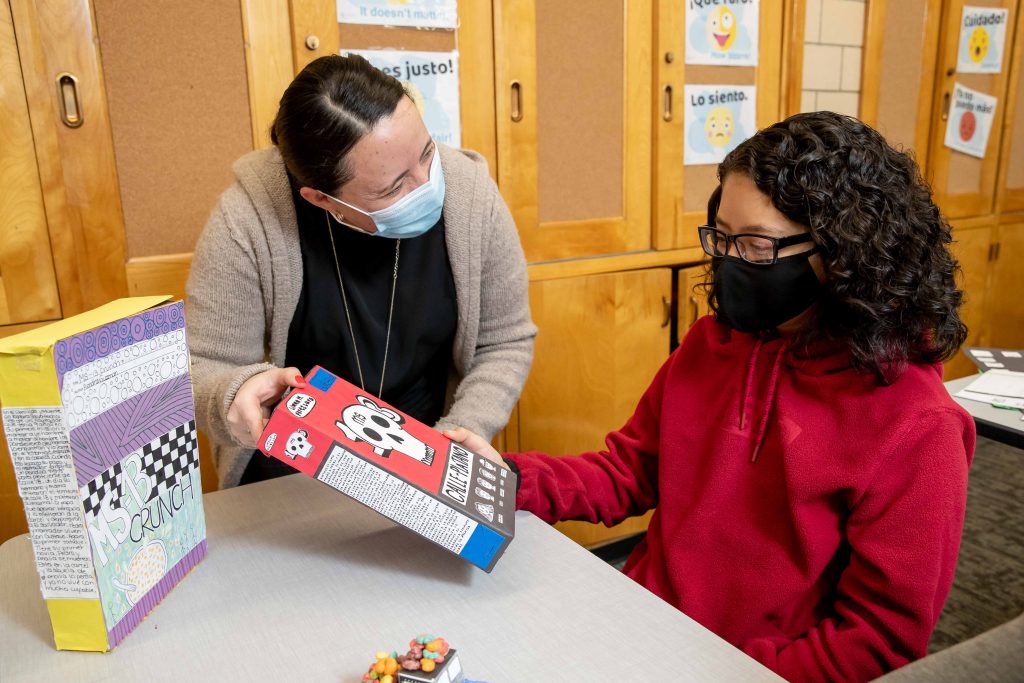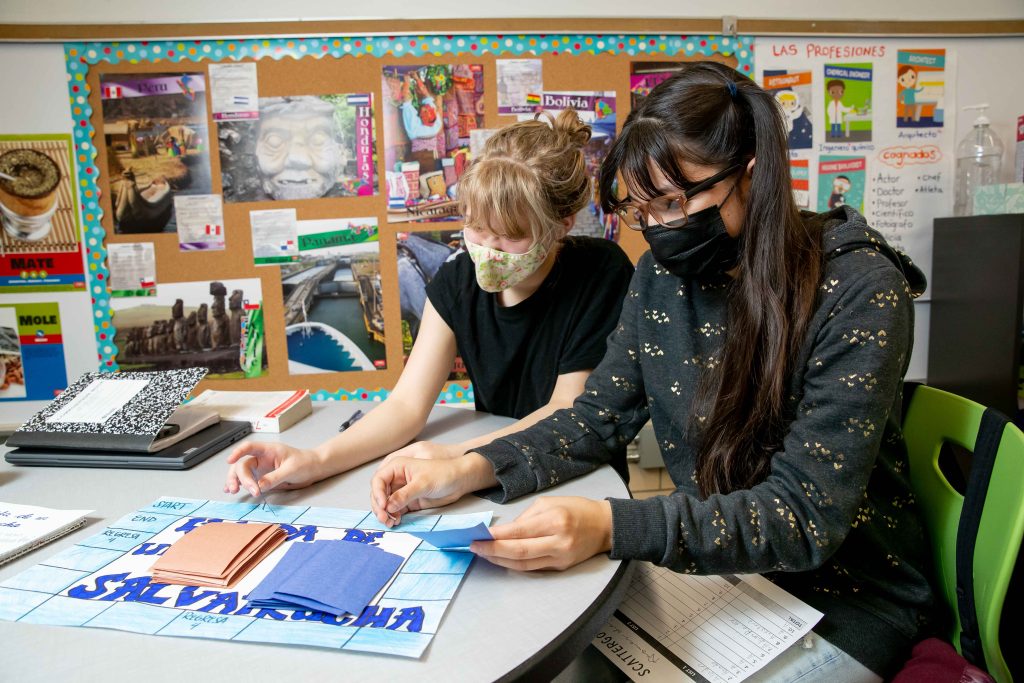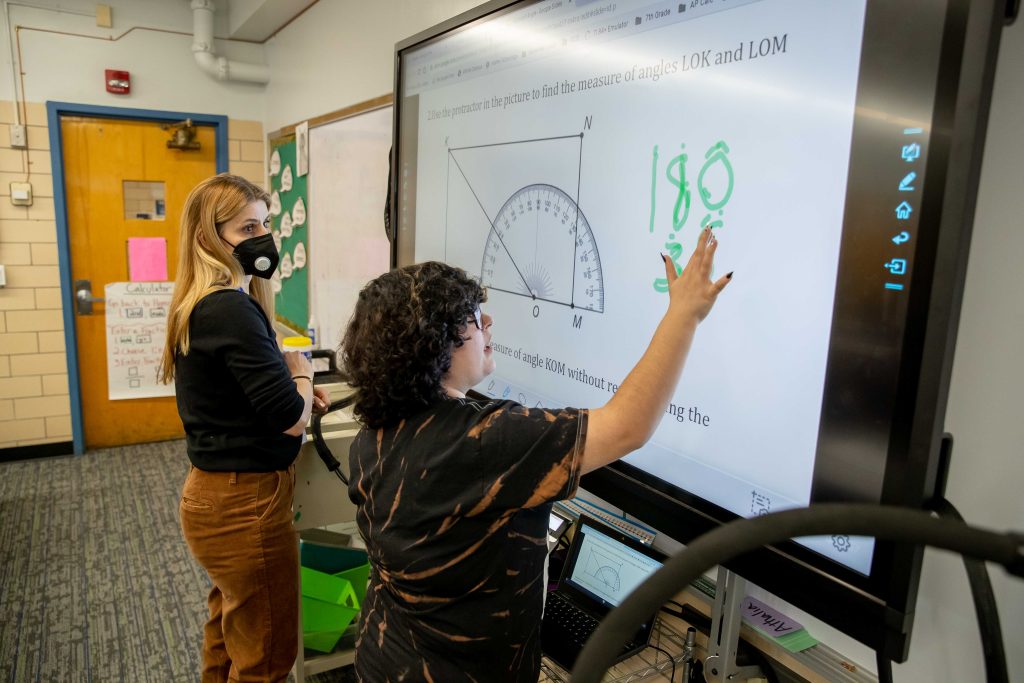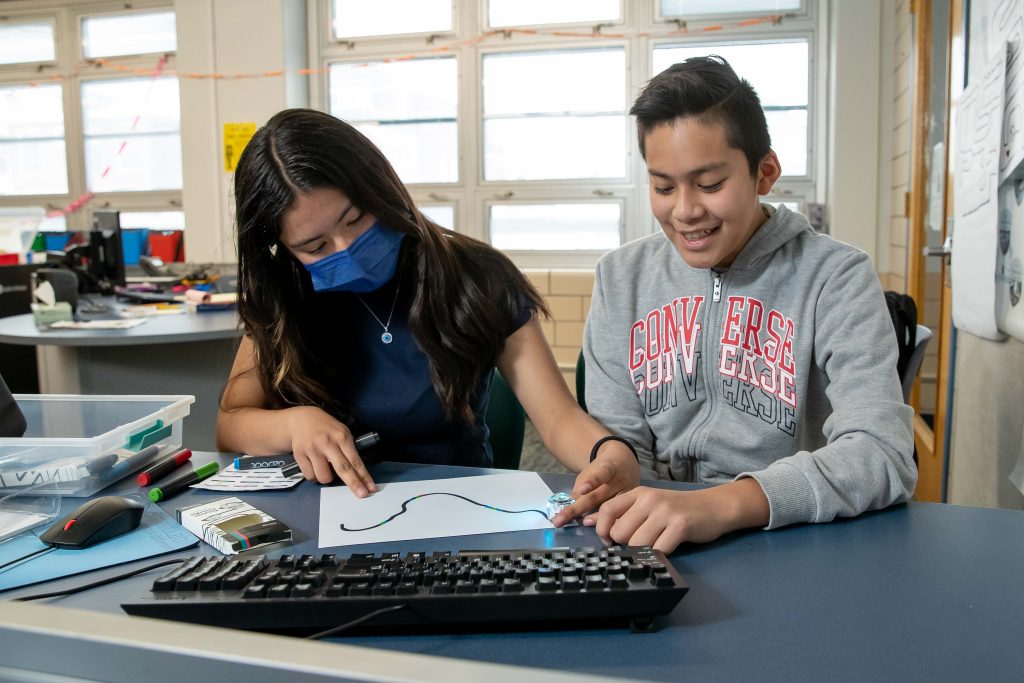



Under Construction
Under Construction
Under Construction
Section 504 is a federal law that protects the rights of individuals with disabilities in schools. Students determined to have an eligible disability under Section 504 are entitled to a “free appropriate public education,” which includes the provision of regular or special education and related aids and services designed to meet the student’s individual educational needs as adequately as the needs of nondisabled students are met.
Our Special Education program is committed to providing a quality educational experience based on the individual needs of each child to minimize the impact of their disability through a continuum of services, ranging from those provided in a general education classroom to those in fully contained classroom settings.
In addition to getting help from special education teachers, students with disabilities may receive support from paraprofessionals, nurses, school psychologists, social workers, speech therapists and physical therapists. The goal of special education is to provide services that allow students with disabilities to acquire the skills to pursue independent living and post-secondary readiness.
Every child with a disability who attends public school and receives special education and related services must have an Individualized Education Program (IEP). An IEP is a document uniquely designed for one specific student, with the intention of improving educational results for that child. Each IEP must be created in compliance with the Individuals with Disabilities Education Act (IDEA) and, in Colorado, the Exceptional Children’s Education Act (ECEA).
Parents who are interested in the quality of education received by children and youth with special needs can connect with the district’s Special Education Advisory Council (SEAC). Click or tap here to learn more.
If you have any questions about the Special Education program at DCIS, your child’s 504 or IEP, or any related matters, please contact the following: